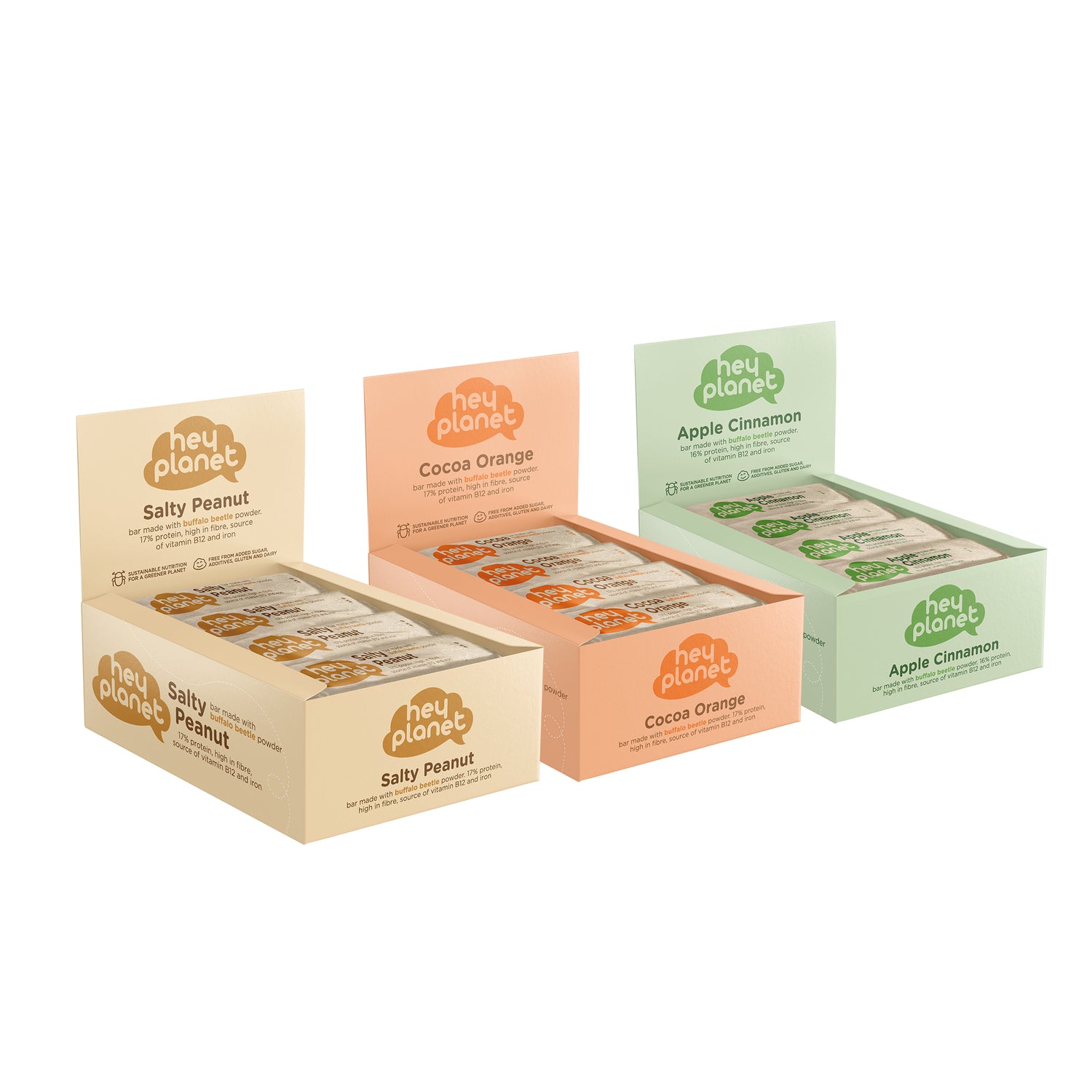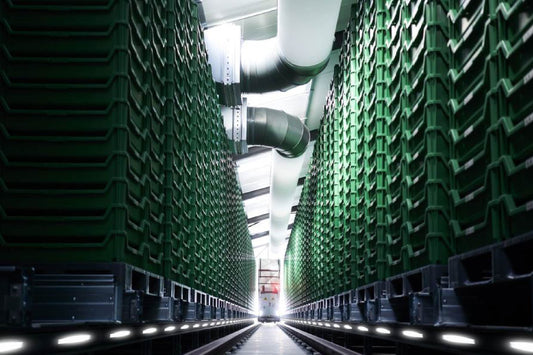The FAO estimates that the global population will reach about 9.7 billion people by 2050. A growing population means that people who are already food scarce are becoming even more vulnerable. It also means we will have to be using more resources to meet our food needs.
Our food system is already pushing the boundaries of what our planet can provide for us. Presently, most people in Western countries get their protein primarily from meat - one of the most environmentally damaging behaviors.
Go vegan? That is not necessarily the best solution for everyone’s health or the environment.
Therefore, we have an incredible alternative! An alternative that is rich in protein, vitamins, and minerals without destroying the environment. Food that gives you maximal nutritional benefits for minimal environmental harm.
Edible insects are a viable solution to tackling climate change as well as the global food crisis. Here are the most important facts about why we should all start eating insects to save the planet.
1. Crickets Require 12 Times Less Feed Than Cattle to Produce the Same Amount of Protein
Intuitively, an insect consumes less than a chicken, a pig or a cow - they are tiny! However, interestingly insects actually also consume much less per unit body mass than other livestock, this is referred to as the feed conversion ratio.
This means that crickets are twice as efficient in converting feed to food as chickens, at least four times more efficient than pigs, and a staggering 12 times more efficient than cattle. One reason for this, is that insects are cold-blooded and do not require feed to maintain body temperature. Needing less feed means that we need less agricultural land to produce insects, and thus leave more land as rich ecosystems, protecting biodiversity.
This graph shows the amount of feed required to produce 1kg of protein from crickets, chicken and beef.

2. Replacing Meat with Insects in Just One Family Meal Saves Enough Water to Fill 38.8 Bath Tubs
Insects are much more water efficient than any other source of protein. Amazingly, insects require even less water than soya beans, and many other pulses and nuts. Modern agriculture currently drains 70% of all our freshwater resources. It is estimated that by 2025, 64% of the global population is expected to live in water-stressed basins.
Using insects as a nutrient source can reduce the amount of water needed in our food production and helps us decrease the stress placed on biodiversity, food production, and other vital human and environmental requirements. This is the water required to produce 1kg of food from crickets, chickens, and beef, respectively:

3. Insect Production Causes 100 Times Less Greenhouse Gas Emissions Than Beef Cattle
Livestock rearing is accountable for 14.5% of global greenhouse gas emissions, which is a higher share than the entire transport sector. In addition to lower greenhouse gas emissions, insects also compare favorably to other livestock in ammonia emissions (commonly known as urine and manure), which often contributes to environmental pollution such as nitrification and soil acidification. This is how much CO2 equates to the production of 1 kg of protein from insects, chicken, and beef:

4. No Food Waste
Another environmental benefit of insects as an alternative protein source is that they can eat almost anything. So they can be fed sustainably on organic side streams, such as compost and organic kitchen waste (for example vegetable and fruit peel and stems). There is huge potential for insects to contribute to a circular economy by converting billions of tonnes of biowaste every year into feed and thereby food.
5. No Antibiotics!
We pump huge amounts of antibiotics and hormones into our livestock to keep them healthy and grow fat fast, in the United States livestock account for 50% of all antibiotic use. On the scale of current use, this makes the meat unhealthy for consumption and risks the development of resistant strains of bacteria.
Edible insects do not need antibiotics or hormones for many reasons. Insects are evolutionarily a very separate species from humans and therefore their pathogens are often not readily transferable to humans. Insect bodies are also much less of a complex system than humans or livestock. They, therefore, do not suffer from illness or react to hormones in the same way. The insects we use are certified and under strict regulations for safety and animal welfare, and no pesticides or antibiotics are used at any time.
6. No Pesticides!
Annually we deposit over 2 million tonnes of pesticides across the Earth in an attempt to control insects, unwanted weeds, rodents, and bacteria from threatening our food supplies. Unfortunately, this means we are continuously harming biodiversity, as well as soil and human health.
Traditional and organic methods of pest control in agriculture include using certain types of insects as crop-protectors and guarding the farmers’ crops against unwanted invasive species. One such farmer-friendly insect is the ant, historically used in Chinese orange orchards to protect the trees from other unwanted pests. Interestingly, escamoles (ant larvae and eggs) also happen to be a Mexican delicacy due to their buttery and nutty taste! Insects could therefore be more than simply our future food source but also simultaneously a solution to our pesticide epidemic.




